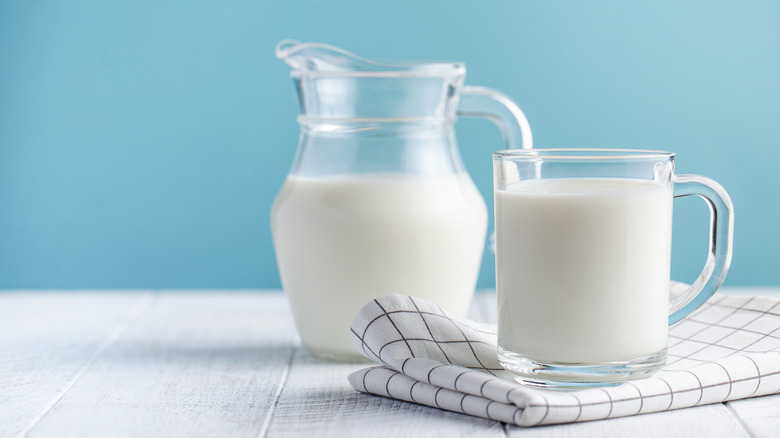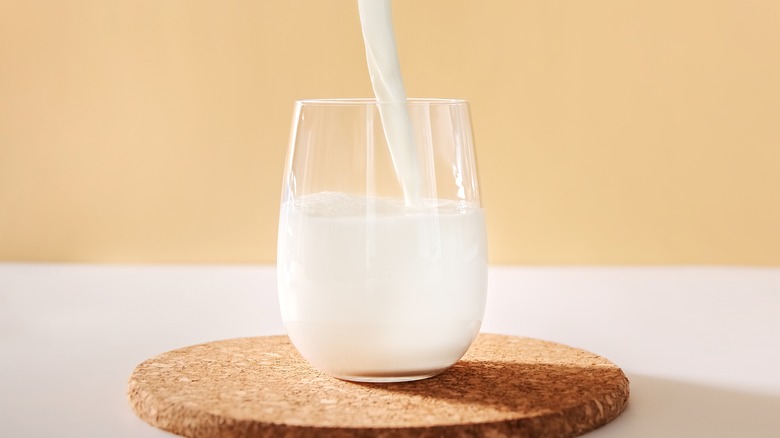Why Humans Have Historically Preferred To Drink Cow's Milk
Just like lambs drink milk from ewes, kids go to does, and foals go to mares, human babies drink milk from their mothers in infancy. While other mammals turn to different drinks as they grow older, humans continue to drink milk. However, we tend to pass over milk from our own species in favor of cow's milk.
Even though 68% of the world's human population is lactose intolerant, cow's milk is still extremely popular. The reason why could simply boil down to the taste. According to historians, there's evidence of people consuming all kinds of milk thousands of years ago. While people in East Africa were drinking goat's milk 6,000 years ago, sheep's milk was the dairy of choice in parts of Europe and the Middle East. Then, during the Bronze Age some 3,000 years ago, cow's milk emerged as a way to wean babies who were almost done nursing.
After that, cow's milk simply became the dominant dairy option. Aside from cows being easier to milk than other mammals, their milk tastes creamy and sweet in comparison to the sharp, slightly sour taste of goat and sheep milk. There are a range of alternatives, like plant milk, that people can choose instead of dairy. And yet, over six billion people around the world consume milk or products containing milk.
What are the health benefits of cow milk?
Thanks to the infamous "Got Milk?" ad campaign of the 1990s, many people see milk as synonymous with strong bones. The star-studded marketing tactic put the beverage on our minds and introduced a new generation to the high calcium, protein, and vitamin D levels found in milk. It's true that milk is a great source of certain vitamins and minerals and is great for kids, but it's not as vital once one reaches adulthood.
There are plenty of other sources of calcium and protein (such as almonds, tofu, salmon, and spinach) that offer the same benefits as cow's milk, without the risk. A large dairy intake can cause acne, digestive issues, and heart problems thanks to the saturated fat found within it. Additionally, some researchers have disputed the claim that milk is responsible for healthy bones — in fact, some research suggests the opposite.
Most of the world grew up drinking cow's milk and still consumes it to this day. Despite the havoc it wreaks on our digestive tract and its questionable benefits, that cold, creamy texture remains unmatched by the alternatives.

